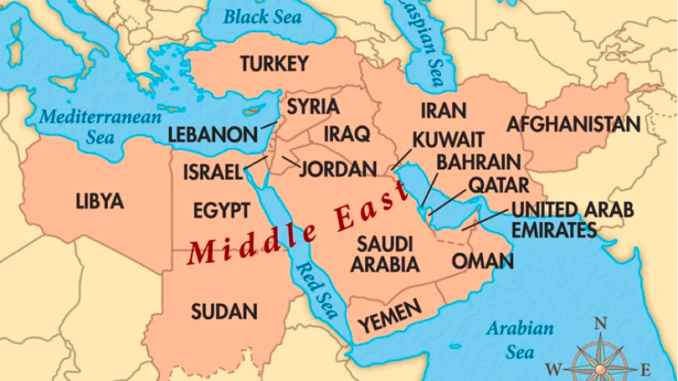
AFTER 11 harrowing days of sustained Israeli military aerial offensive on the Gaza Strip and rockets fired by Hamas militias on Israeli civilian targets, a ceasefire was finally agreed upon by the warring parties on May 21, effectively ending the hostilities. This, surely, will serve as a soothing relief to the devastated civilian population in the impoverished conflict areas and is expected to usher in peaceful, though uneasy, co-existence in the Middle East. Given its strategic position in the supply of oil to the world, the ceasefire understandably resonated across the major world capitals.
Unfortunately, the truce, brokered by Egypt under sustained pressure from the Joe Biden administration in the United States to de-escalate the conflict, was not forthcoming until the conflict resulted in huge casualties on both sides, but more for the Palestinians. A health ministry official in Gaza told France24 that Israeli air strikes and artillery fire killed 253 hapless Palestinians, including 66 children and 38 women, injured over 1,900 people in the area for the period the hostilities lasted from May 10. Besides, according to the World Health Organisation, 18 hospitals and clinics and other health facilities were destroyed. It was further stated that the Central COVID-19 testing lab in Gaza City was almost nearly destroyed.
On the other hand, medics said that the estimated 4,000 rockets fired from Gaza claimed 12 lives in Israel, including one child and an Arab-Israeli teenager, an Israeli soldier, one Indian national and two Thai workers. However, a total number of 357 Israelis were reportedly wounded. The latest conflict is the worst outbreak of violence in the Middle East since 2014, which started after clashes in Jerusalem’s Al-Aqsa mosque compound, regarded as Islam’s third holiest site. It is revered by the Jews as the Temple Mount, reflecting the convoluted issues in the Palestinian imbroglio. Consequently, Israeli forces reportedly moved in on Palestinian worshippers there, towards the end of the Muslim holy month of Ramadan, seeking to quell protests against the threatened eviction of Palestinian families from homes in the East Jerusalem neighbourhood of Sheikh Jarrah to make way for Jewish settlers.
However, a bullish Benjamin Netanyahu, Israel’s Prime Minister, has remained insistent that his country would always defend itself in the event of any violation of the ceasefire terms with Hamas, re-echoing the stance of the US that Israel reserved the right to defend itself against rocket attacks by the Islamist group.
“If Hamas breaks the calm and attacks Israel, our response will be very powerful,” he said, boasting, “We inflicted very severe blows on Hamas and changed the equation. If Hamas thinks we will suffer a drip of rockets, it is wrong.”
This tragic turn of events was largely avoidable if the much-celebrated two-state solution aimed at establishing two states for the two peoples, Israel for the Jewish and Palestine for the Palestinians, agreed as part of the Oslo Accords in 1993, was implemented. Unfortunately, the Netanyahu government, egged on by the disruptive Donald Trump administration, jettisoned it and authorised the construction of new Jewish settlements in the occupied territories.
No doubt, the largely poor neighbourhoods of the Gaza Strip can ill-afford a continuation of hostilities, and the huge tollon the people, especially on women and children, whom Hamas is accused of using as human shields while firing rockets at Israeli targets. There is therefore a need for the two sides in the conflict to embrace sustainable peace and ensure fidelity to the ceasefire terms to avoid further escalation of tension in the Middle East. The strong commitment voiced by the US President, Biden, to peace in the region is reassuring and is a remarkable departure from the bombastic posturing of the erstwhile Trump administration.
He said, “I believe the Palestinians and Israelis equally deserve to live safely and securely and to enjoy equal measures of freedom, prosperity and democracy. My administration will continue our quiet, relentless diplomacy toward that end. I believe we have a genuine opportunity to make progress and I’m committed to working for it.” This is the way forward.
Ultimately, the plan by the US, the major Israeli ally, to reopen its consulate in Jerusalem and give millions in aid to help the war-ravaged Gaza Strip, as well as support a US-Palestinian committee to reopen the Palestine Liberation Organisation office in Washington, which was closed during the Trump administration, are measures which will go some way in boosting the confidence of the Palestinians in embracing the terms of the ceasefire. Countries like Turkey and Iran that have a huge influence on Hamas, which controls the Gaza Strip, and the Palestinian authorities, should adopt a more conciliatory approach to enhancing peacebuilding in the region. They should avoid stoking conflict by arming militants to engage in proxy wars.
Instead of spending money in amassing arms and ammunition in anticipation of an unwinnable face-off with Israel, the Palestinian authorities should instead be encouraged to invest in improving human development. Intractable as it appears, the world should not relent in seeking lasting peace in the Middle East. With goodwill on all sides, stakeholders should restart talks to pursue the realisation of the two-state solution.
END

Be the first to comment